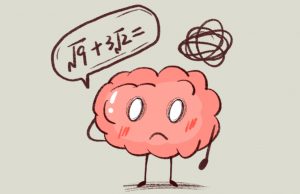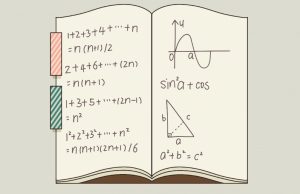Why Mathematics Is Difficult For Students: Math separates students more than any other subject in school. Though many children excel in problem-solving, geometry, and algebra, others find arithmetic so difficult to grasp that they get intimidated, upset, or worried when doing any math-related activity.
Your youngster should not be ashamed or embarrassed if they are having difficulty with math. Once it comes to studying, everyone has their unique set of talents and limitations. As aprimary caregiver, you’re in a wonderful position to assist them in overcoming this obstacle and making arithmetic more accessible to them.
In this post, we’ll look at why a student can struggle with arithmetic and how they might improve.

Recommended: See why democracy is the best form of government
7 Reasons why students struggle with mathematics
The following are seven reasons why students struggle with math. To assist your youngster learn arithmetic more easily, you need first figure out why they’re having trouble. For many youngsters, it is not so much what they are learning in arithmetic as it is how and why they are learning it that is difficult.
These are some of the most prevalent reasons why some youngsters struggle with math:

1. Concentration and attention difficulties: Whenever your child is working on a mathematical equation, they must focus and complete each step meticulously. If they lose focus or become distracted throughout this process, they are far more likely to make a mistake and will have to start again until they obtain the correct answer.

Repeating the same mistakes again and over may erode your child’s confidence and enthusiasm in arithmetic, particularly if they feel like they’re lagging behind their peers.
2. Lack of understanding: Many math sessions begin with the teacher giving a math problem to the class and guiding them through a phase procedure for solving it. Your youngster may feel secure enough to try out a way after observing the teacher handle an issue with it.

However, when they’re faced with a more difficult situation later on, they may discover that they can’t completely grasp the strategy given in class. Your child’s self-esteem may suffer as a result. They may even refuse to tell their teacher since they are humiliated that they do not comprehend the approach.
Absences from school, such as vacations and sick days, are additional typical reasons why your kid may struggle with a math subject. If they lack the chance to make up for lost time, they may feel left behind and find arithmetic more difficult to master than their classmates.
Recommended: A day in the life of a Doctor explained
3. Learning difficulties & disabilities: While instructors do an excellent job of boosting the performance in their pupils, the classroom is not necessarily the most conducive learning setting. It’s considerably more difficult for students with learning problems or intellectual disabilities to love math without a teacher or teaching assistant who understands how to appropriately help them.

Children with issues such as dyslexia, commonly referred as neurodivergent, may struggle to read arithmetic questions or complete word problems. Certain neurodivergent issues, such as autism or ADD/ADHD, might make it difficult for your kid to focus and engage comfortably in school math tasks.
Reach your kid’s teacher or school if you fear your child is having a learning challenge that is impacting their arithmetic performance. Several schools provide special learning programs that may detect your child’s difficulties and develop a curriculum to help them achieve success.
4. Lack of patience: As math requires a lot of multi-step procedures to solve problems, mastering it requires a tremendous amount of practice compared to other courses.
Having to repeat a procedure over and over might rapidly bore some youngsters, causing them to lose interest in arithmetic. While teaching your kid to be patient is a vital part of their growth, they must also be bolstered to learn arithmetic via interesting and engaging activities.
Also see: How to become a successful business entrepreneur
5. Not enough opportunity: Beyond the classroom, children have several possibilities to participate in their chosen activity or pastime, ranging from art displays and scientific competitions to soccer and theatrical organizations. What of math, though? Children are frequently unaware of ways to practice fundamental math beyond the classwork. This might make children lose interest in arithmetic and make it difficult for them to stay motivated.
6. Being left-brained vs. right-brained: Even when we talk about class topics, every child has their own preferences and dislikes. In general, students may be divided into two groups based on the sort of topic they enjoy. Either left-brained or right-brained is a term used to describe this.

The following is how it works:
a. People with the right brain like being artistic and articulating themselves verbally or in writing. Art, English, theatre, and music are among their favorite topics in school.
b. People who are left-brained are the polar opposites of those who are right-brained. They are inherently analytical and enjoy problem solving in topics such as math, technology, and science.
While scientists are still debating whether our brains are designed this way, many people feel that youngsters (and grownups) have a predilection for one sort of subject over another. If your kid is right-brained, this might explain why arithmetic is more difficult for them to grasp because is away from their normal comfort bubble.
Recommended: How to become a mathematics guru
7. Math anxiety: When it comes to arithmetic, does your kid get scared or anxious? If this is the case, kids may struggle to learn arithmetic due to math anxiety. When someone is confronted with arithmetic issues, they develop a fear called math anxiety. It usually occurs when a kid (or adult) is placed in a testing atmosphere, but it may also occur while they are in math class or have arithmetic homework to complete.

Math anxiety manifests itself in a variety of ways. When your student has a math lesson or an exam, they may look silent and apprehensive or refuse to go to school. They may also exhibit bodily symptoms such as nausea and tremors. While difficult, math anxiety may be effectively addressed with the help of experts such as instructors, tutors, and counselors.
Making Math Less Difficult
When it pertains to arithmetic and difficulty, we’ve identified a few things:
a. Math appears to be tough because it requires time and effort.
b. Most students may not have adequate time to “grasp” arithmetic classes and lag behind when the teacher continues
c. Many students go to increasingly complicated topics with flimsy foundations.
d. We frequently get stuck with a shaky building that will eventually collapse.
Also see: Qualities of a good teacher
Despite the fact that this may appear to be negative news, it is actually very excellent news. If we’re very calm, the solution is simple. You can flourish in math regardless of your current level in studies if you go farther enough to solidify your base. You’ll need a thorough knowledge of the fundamental ideas you learned in elementary school math to fill in the blanks.
a. If you’re still in middle school, wait until you’ve mastered pre-algebra ideas completely before moving on. If required, seek out a tutor.
b. If you’re in high school and suffering with arithmetic, consider downloading a middle school math curriculum or hiring a tutor. Ensure you comprehend every subject and exercise presented in middle school.
c. If you’re in college, go back to fundamental math and forge ahead. This isn’t going to take as forever as it appears. In a week or two, you can work your way through years of math.
No matter where you begin or where you stumble, you must accept any weak points in your foundation and use practice and understanding to fill up the gaps!
Recommended: How answer law problem questions using IRAC method
Conclusion
Math might be tough to master, however with the right skills and consistent practice, it doesn’t have to be. Additional support via online tools and learning platforms would also be beneficial.

Edeh Samuel Chukwuemeka, ACMC, is a lawyer and a certified mediator/conciliator in Nigeria. He is also a developer with knowledge in various programming languages. Samuel is determined to leverage his skills in technology, SEO, and legal practice to revolutionize the legal profession worldwide by creating web and mobile applications that simplify legal research. Sam is also passionate about educating and providing valuable information to people.